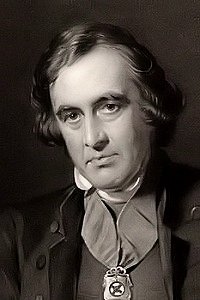Introduction
Born: September 9, 1807, North Frederick Street, Dublin, Ireland.
Died: March 28, 1886, London, England.
Buried: Westminster Abbey, London, England.

Born: September 9, 1807, North Frederick Street, Dublin, Ireland.
Died: March 28, 1886, London, England.
Buried: Westminster Abbey, London, England.

His father was Richard Trench, sixth son of Frederick Trench, of Woodlands, County Galway; his mother Melesina, only grandchild and heiress of Richard Chenevix, Bishop of Waterford, and widow of Colonel St. George.
Trench’s childhood home was Elm Lodge, close to the village of Bursledon, not far from Southampton.
In February, 1816 he proceeded to Twyford School, and in 1819 to Harrow, where he won great distinction. In October 1825 he was entered at Trinity College, Cambridge.
His mother’s correspondence is full of references to a little periodical called The Translator, begun in 1825, or immediately on his becoming an undergraduate. She was his ardent co-worker, both as contributor and critic.
In 1826 he had acquired Spanish, and in that year applied himself to preparing and publishing a volume of Miscellanies, of which the
profits were to be sent to the committee formed for the relief of the exiled Spaniards…The Letters and Memorials (1828) give vivid details of his continuous interest and daring personal service and sacrifices on behalf of Spain. It was during the winter of 1829–30 that the consultations and schemes respecting Spain were discussed in John Sterling’s apartment.
Robert Boyd, Trench’s cousin, threw himself and his entire fortune into the plot by purchasing a small ship in the Thames and storing it with arms, in which General Torrijos and fifty picked Spaniards were to sail for the new adventure of the Golden Fleece.
The enterprise ended tragically. Boyd and others perished by the inevitable vengeance of the Spanish sovereign when captured. Trench, though, was safe in Gibraltar.
Till far up in young manhood he was undecided as to his calling, law rather than divinity coloring his thoughts and plans. He left Cambridge February 1, 1829, and rejoined his widowed father at Elm Lodge, near Southampton.
He married, at the Abbey Church, Bath, May 31, 1832, his cousin, Frances Mary Trench, daughter of his uncle Francis Trench (and son of Frederick Trench, of Woodlawn, County Galway, Ireland, and next brother to the 1st Lord Ashtown).
On October 7, 1832, he received Deacon’s Orders in Norwich Cathedral at the hands of Bishop Bathurst of Norwich, with H. J. Rose. He was ordained a priest early in July, 1835, by Bishop Sumner of Winchester…
In 1846 he was appointed Professor of Divinity at King’s College, London, later changed into
Professor of Exegesis of the New Testament,which he held until 1858…In 1856 he was appointed Dean of Westminster…
On New Year’s Day, 1864, he was consecrated Archbishop of Dublin in Christ Church Cathedral. He instantly took a foremost place in the regard of the entire community…His final confirmation was in St. Bartholomew’s Church on May 16th, 1884. On November 28th, 1884, he resigned his Archbishopric.
Julian, pp. 1184–85